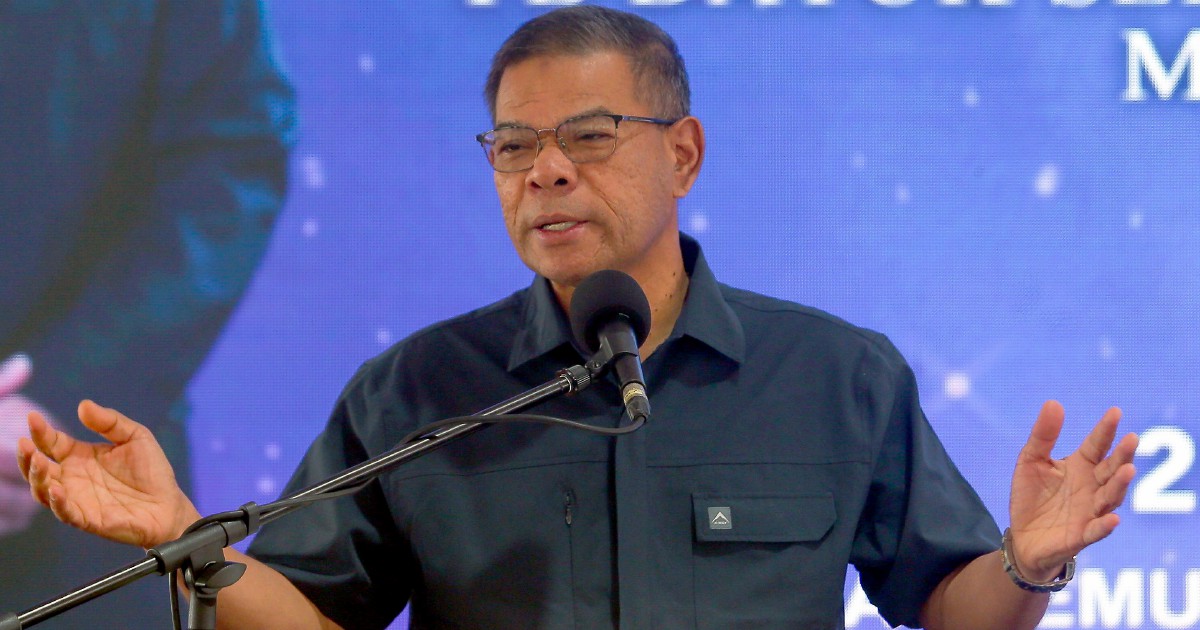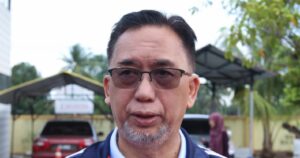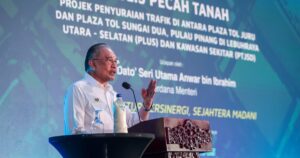KUALA LUMPUR: The Home Ministry will install 635 autogate systems at 123 national entry points to enhance border security and curb document fraud, including syndicates involved in the manipulation of travel documents such as the “flying passport” scam.
Home Minister Datuk Seri Saifuddin Nasution Ismail said the new systems will rely on advanced biometric technology including facial recognition, iris scanning and fingerprint verification to reduce human involvement and improve the authentication of travellers at checkpoints.
The rollout will begin this December at key locations, including the Bangunan Sultan Iskandar (BSI), the Sultan Abu Bakar Complex, Kuala Lumpur International Airport Terminals 1 and 2, Kuching International Airport, Kota Kinabalu International Airport and Penang International Airport.
Nationwide implementation is expected to be completed by March 2028.
“Among the government’s efforts to combat manipulation, such as flying passports and counter setting, is the digitalisation of services, particularly through the expanded use of autogates.
“Autogates will minimise human interaction at entry points. Travellers’ movements will be processed digitally, without relying on officer discretion,” he told the Dewan Rakyat today.
He was responding to a question from Lee Chean Chung (PH Petaling Jaya) on corruption and malpractice involving Immigration officers at KLIA, particularly the “fly and U-turn” syndicate, which has tarnished Malaysia’s international image.
Saifuddin said the ministry is also in the process of procuring body-worn cameras for frontline officers at key entry points, with an initial proposal for 614 units.
“We are currently conducting a proof of concept (POC) for body-worn cameras. Procurement is expected to be finalised by September this year, with hopes of securing approval for 614 units.
“This is aimed at enhancing service integrity and preventing incidents of border manipulation,” he said.
He added that the ministry is working closely with the police, Malaysia Airports Holdings Bhd (MAHB) and airline companies to implement an Advance Passenger Screening System by the end of this year.
The first phase will involve 10 of the 56 airlines operating in Malaysia under the Advance Passenger Information (API) programme.
“This method allows us to obtain information about travellers before they even set foot in the country,” he said.
Saifuddin also said the ministry is conducting awareness, training and enforcement programmes under the Immigration Anti-Corruption Plan, in collaboration with the Malaysian Anti-Corruption Commission (MACC), the police and other enforcement agencies.
“So far, 185 awareness and training courses have been conducted. Misconduct is a complex issue, but stern action will continue to be taken as a warning to others.
“The ministry will not hesitate to act against officers suspected of wrongdoing.”
He said a total of 26 enforcement officers were dismissed last year, while in 2023, eight were dismissed, all under Regulation 37 of the Public Officers (Conduct and Discipline) Regulations 1993.
He added that 50 cases involving phantom travellers had been recorded, with two people charged in court and 48 others subjected to internal investigation based on MACC recommendations.
“Following intelligence gathering and arrest, the agency involved will carry out an internal investigation.
“If a prima facie case is established, the matter will be referred to the Public Officers (Conduct and Discipline) Regulations 1993, particularly Regulations 36 and 37, under which disciplinary actions such as warnings, fines, forfeiture of emoluments, salary reductions or dismissal may be taken,” he said.
© New Straits Times Press (M) Bhd






